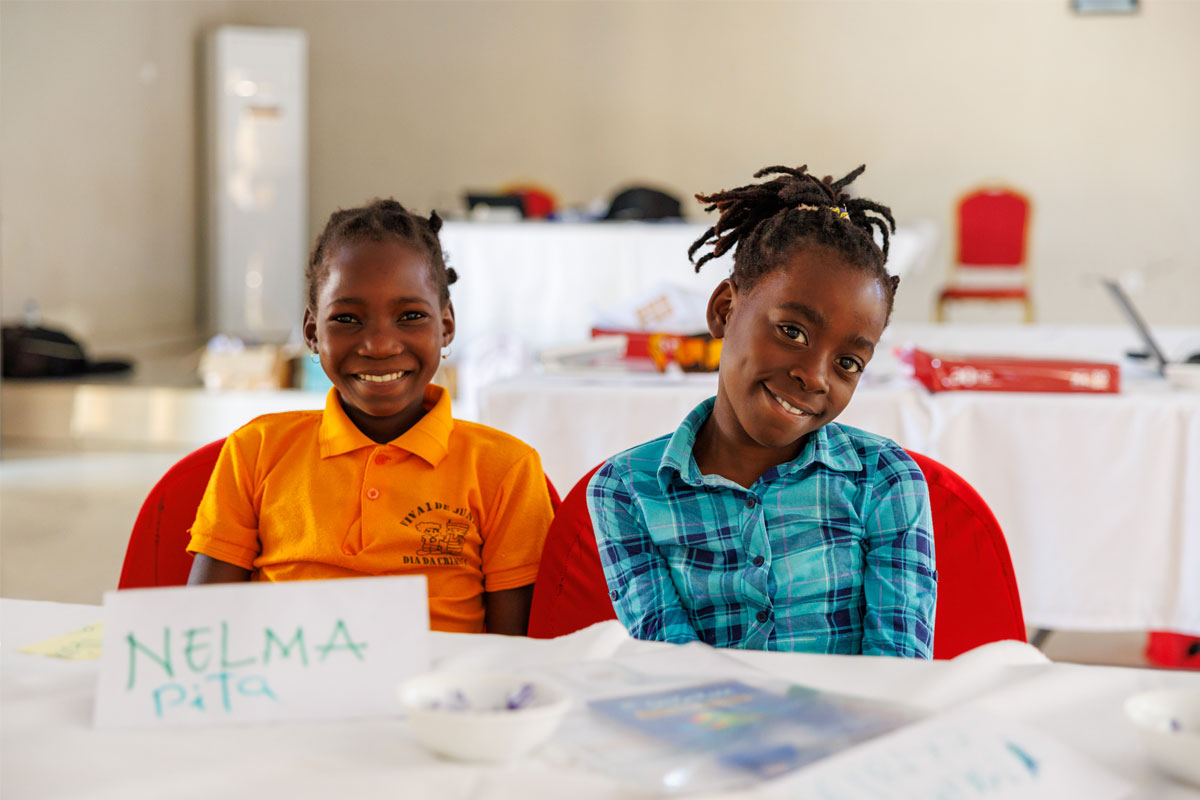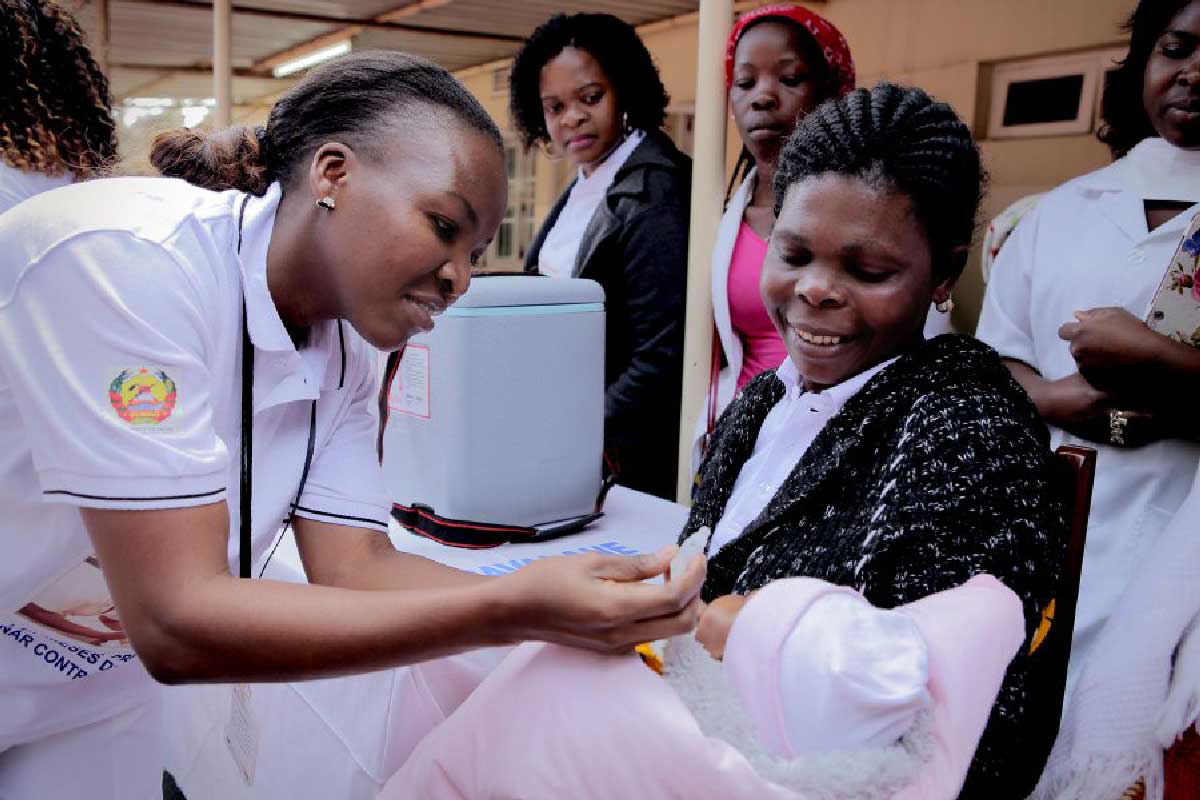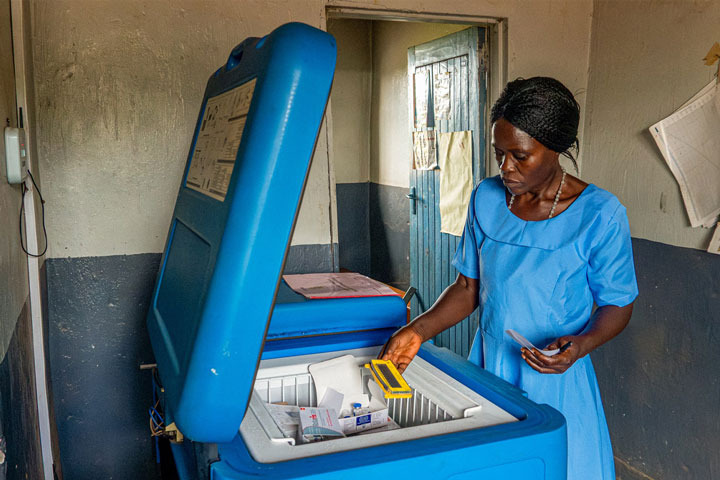'Radio Polio': how free radio in Mozambique is helping keep kids safe
Familiar voices speaking local tongues are getting the vaccination message out there, found Winile Ximba in Matola.
- 7 February 2025
- 7 min read
- by Winile Ximba
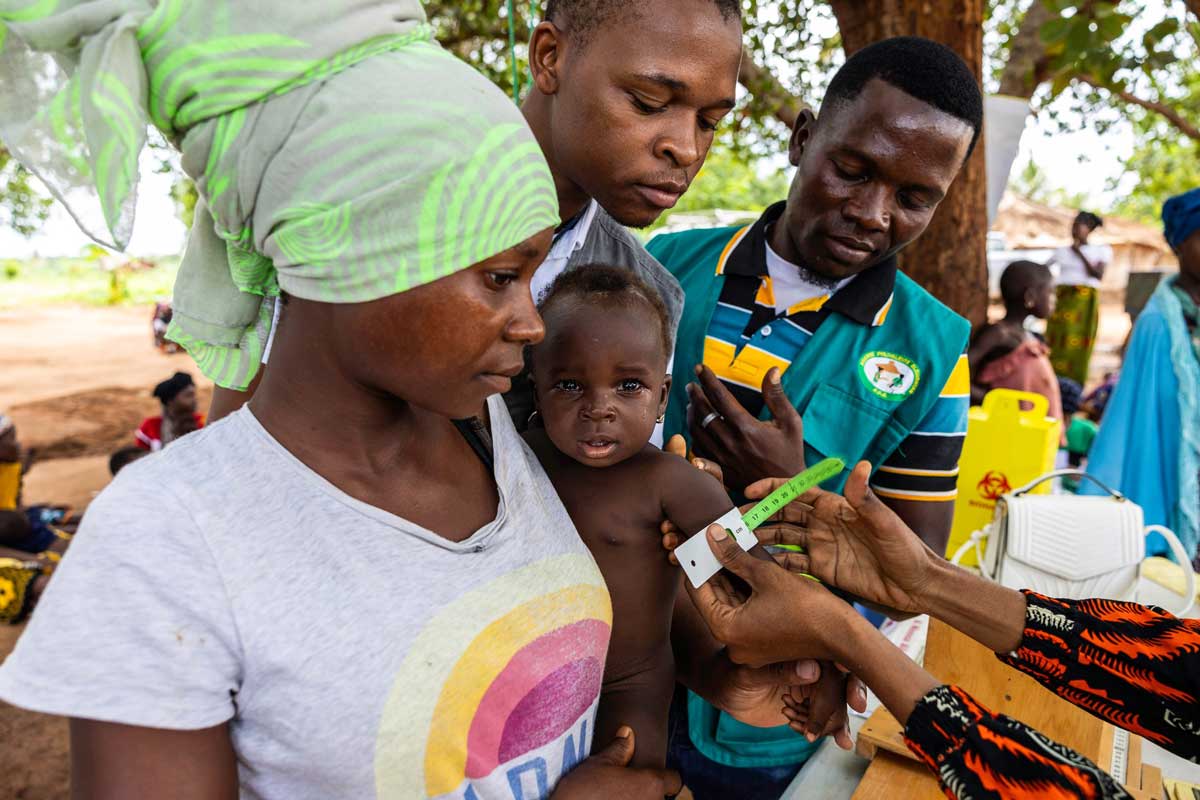
“We love the voice of polio on the radio, reminding us of its damage, and of the vaccine’s success rate,” says Chido Dliwayo, 39, a street fruit vendor and mother of four in Matola.
Matola is a most populous but poor township on to the west of Maputo, the capital of Mozambique – the kind of densely populated community in which unchecked diseases can spread fast.
Dliwayo bathes her yellow ripe mangoes and talks proudly of how her youngest child’s vaccination card is impeccably up to date. During her own childhood, Mozambique’s calamitous civil war, which ended in 1992, disrupted vaccination across the country.
Without a chance to get the polio vaccines, some of her friends grew up with crippled limbs and bent backs. Unable to afford wheelchairs, many of them ended up walking propped up on wooden sticks. She was lucky then that her parents got hold of vaccine for her from mobile clinics run by Jesuit missionaries.
“My parents said some unvaccinated kids of my age even succumbed to polio. I promised myself that all my kids will never miss a polio dosage,” she says.
Lurking threat
In 1992, the war ended, the health system’s reach broadened, and polio seemed to go into retreat.
But polio – like many other viruses – only needs a narrow opportunity to make a comeback. After COVID-19 caused vaccination coverage rates across the world to crater, southern Africa saw a shock resurgence of the paralysing disease. In February 2022, a case of wild poliovirus – genetically revealed to be imported from Pakistan, one of only two countries worldwide still endemic for the disease – was confirmed in a three-year-old girl in Lilongwe, Malawi.
Neighbouring Mozambique went on alert. By May, the first case of wild-poliovirus-induced acute flaccid paralysis had been discovered in northern, coal-rich Tete province. By year’s end, eight Mozambican children here had been disabled by the wild-type virus, and a further 26 had been affected by virus variants.
Large-scale responsive vaccination campaigns mounted by the Ministry of Health, with support from international partners like the Global Polio Eradiction Initiative, an allegiance of institutions that includes the World Health Organization, UNICEF, Gavi and others, brought the epidemic back under control. But the lesson for health systems regionally was clear: the persistence of polio anywhere in the world constitutes a threat to any community, anywhere, whose immune safety net has been allowed to fray.
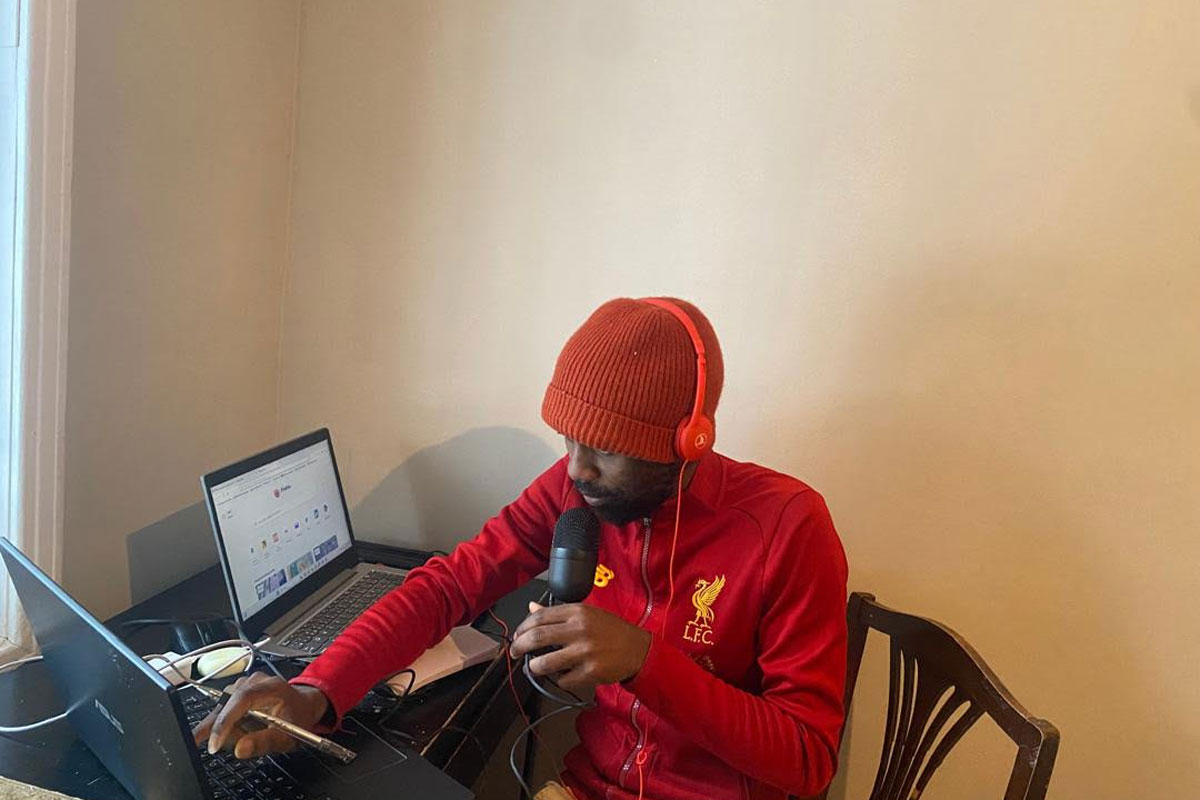
Radio Vaccine
To help keep Mozambique’s children safe, a network of publicly funded community radio stations across Mozambique has been working hard to convince parents of the importance of getting their children vaccinated.
Prominent in this effort is the National Educational Radio and Television of Mozambique's Institute of Social Communication (ICS).
The ICS runs a big network of radio stations across the country. It works via programming in native Mozambiquan languages like Ndau, XiTsonga and Sena to disseminate accurate information about polio vaccines.
“This is more than a broadcasting job for us, it’s about preserving lives,” Fainos de Souza, an impacts assessment manager at the ICS says of the radio presenters’ motivation.
“The Tete flare-up was a grim reminder that the battle against polio never rests,” said Jengu Sithole, the deputy public health supervisor for Tete municipality, whose tasks requires bi-monthly coordination with radio presenters on a variety of healthcare broadcasts, recalls his response to the flare-up. He met the presenters at Radio Mocambique, the state-owned station, and agreed to institute a campaign aimed at getting mothers whose babies had missed vaccine doses to urgently visit their local clinics. The radio presenters also got on the airwaves urging parents to remain calm, but act fast.
“Parents, us healthcare officers, the community – we all became bigger fans of the radio broadcasts,” says Sithole.
“Radio polio lady”
Sheila Mahoze is a part-time presenter on Radio Miramar, a private broadcaster in Maputo. Her passion for presenting healthcare topics, and making sure that her weekly programmes feature at least one broadcast on polio vaccines, has earned her community trust.
“Each time I am walking in Matola, where I was born, mothers walk up to greet me and say, ‘Here is the radio polio lady’,” she says laughing, and adjusting her paper notes ahead of a studio session.
The polio messaging delivered via radio is effective because across Mozambique, free-to-air radio signals travel vast distances and reach millions. To make maximum impact, Mahoze and fellow presenters say they make sure polio and healthcare messaging is delivered in local languages like Xitsonga first – making sure vernacular tongues take precedence over Portuguese.
“We don’t make the mistake of leaving behind some of the rural poor who don’t understand Portuguese well,” she says.
Gire Mafanisana, a mother of two from Matola township, says the radio broadcasts have made a big difference in her family.
After her son was born, poverty and repetitive migration due to repeat floods resulted in her son very nearly going without the protection he needed.
When he suddenly got very sick in 2020, Mafanisana reached out for help – but the help she almost got would have offered him very little. A traditional healer asked the worried mother to pay one goat for the exorcism of a ‘bad spirit’. She says now that she almost fell for the scam, but when she heard messaging on Radio Miramar asking local mothers with babies to come up for routine vaccinations, she took that advice.
Nurses at Eduardo Mondlane University Teaching Hospital in Maputo made sure Mafanisana’s child got the vaccines he was due. “He is a healthy young boy today. The radio broadcast saved his life,” she says.
Have you read?
Turning to the right sources
A key plank of training broadcasters and presenters at Radio Mocambique is reminding them that the World Health Organization (WHO) and the Mozambique health ministry should be the only points of authority they reference on outbreaks, genomic sequencing, surveillance and vaccination data for polio and other health broadcasts, says de Souza, the ICS impacts manager.
“We don’t want our presenters themselves relaying rumours and conspiracies,” he says.
Mozambique, the country with Africa’s longest coastline, is a complicated environment for vaccinators to operate in. Some of its regions are made difficult to access by localised conflicts, recurrent climate-change-linked storms, and a sheer lack of infrastructure.
Likewise, delivering radio messaging on vaccine-critical diseases like polio equitably across all provinces can be challenging. For example, in northern Cabo Delgado, insurgents routinely vandalise radio equipment. In flood-hit Sofala province, cyclones can displace hundreds of thousands each year, and get radio satellite equipment knocked out.
This something that keeps Carlos Trindade Caomba, director of Community Engagement in Mozambique’s Ministry of Health vigilant. The ministry makes sure wherever cyclones or conflict hit, key radio equipment is quickly repaired by technicians as a priority along with other immediate aid programmes like food and water distribution.
“Continuity of free-radio broadcasts are critical not only for polio vaccines information, but [also for the control of] other troubling diseases like malaria, HIV or cholera,” he says.
“It’s a wonderful matrix: from medical experts, down to radio hosts, finally in the ears of mothers who have babies,” he adds.
Radio has helped drive up Mozambique’s polio vaccine coverage to an impressive 86% in 2023 from 81% in 2019.
Mothers like Dliwayo meantime, can only ask for more. They’d like to hear the familiar voices of “Radio Polio” on their social media channels too. “Some young mothers I chat to in Matola township say radio is outdated. The audiences are heading to WhatsApp. Follow them, don’t lose them,” she counsels.
